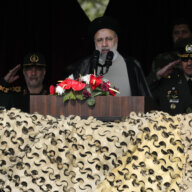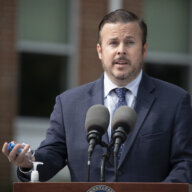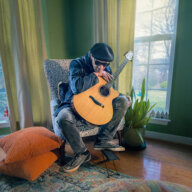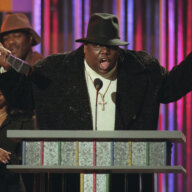 U.S. Rep. Chaka Fattah plays chess with students from After School Activities Partnerships. Credit: Nicholas B. Miles
U.S. Rep. Chaka Fattah plays chess with students from After School Activities Partnerships. Credit: Nicholas B. Miles
U.S. Rep. Chaka Fattah played six games of chess against elementary and middle school students on Saturday at the African American Museum in Philadelphia in conjunction with After School Activities Partnerships.
“I lost one,” Fattah said. “It was simultaneous, though.”
This was Fattah’s 10th consecutive year participating in the grueling mental challenge as part of the celebration of Martin Luther King Jr.’s life and impact.
This month, King would be in his late 80s if he were still alive. But his spirit is ageless, Fattah said.
King’s dedication to education equality and opportunity continues to help push more minority and low-income students to pursue higher education, he said.
“Here’s a man who graduated from Morehouse [College] at 16,” Fattah said. “Came here in Philadelphia and went to Crozer Theological [Seminary], and went on to get a PhD from Bates College in systematic theology.”
“He knew that education was essential,” he added, “And you will see young people of every stripe, white, black, Hispanic, Native American; we have more young people going to college [than ever] in the nation’s history. We have more people coming from what we would consider working-class or poor backgrounds, but are still struggling to find a way to go to college. … So they’re making their way and we need to find a way to make it easier to help young people persist through to graduation.”
Fattah said education helped King develop the skills to paint pictures with language that moved an entire nation and forced social change.
“Dr. King’s a great example,” Fattah said. “If you want to have an impact, you need to have a strong educational foundation.”
Pursuing higher education
Ann-Therese Ortiz sits on the board of Philadelphia Futures, which has organized workshops on Monday to help students and parents with challenges associated with first-generation college admissions. She said the country don’t have look further than Philadelphia for examples of modern-day inequality.
She pointed toward the public school system and its cutbacks, which in many cases has left a single a guidance counselor to work with thousands of students.
“I think we’re taking steps backwards,” she said. “And Dr. King so much talked about the importance of opportunity, really fought for education equality. … And what I get concerned about is when there’s not equal access to opportunity, when it ends up getting divided a long economic lines.”
With the workshops, which will be held at Girard College, Ortiz said the priorities are setting strategies for college preparation and admission, to teach students how to be accountable and how to set goals, and how to deal with high expectations. And, of course, not settle for mediocrity.
Ortiz said the workshops offer a universal message.
“College is possible,” she said. “And if you work hard and if you push yourself to go above and beyond academic expectations, and if you pay attention to deadlines, this is doable.”





























